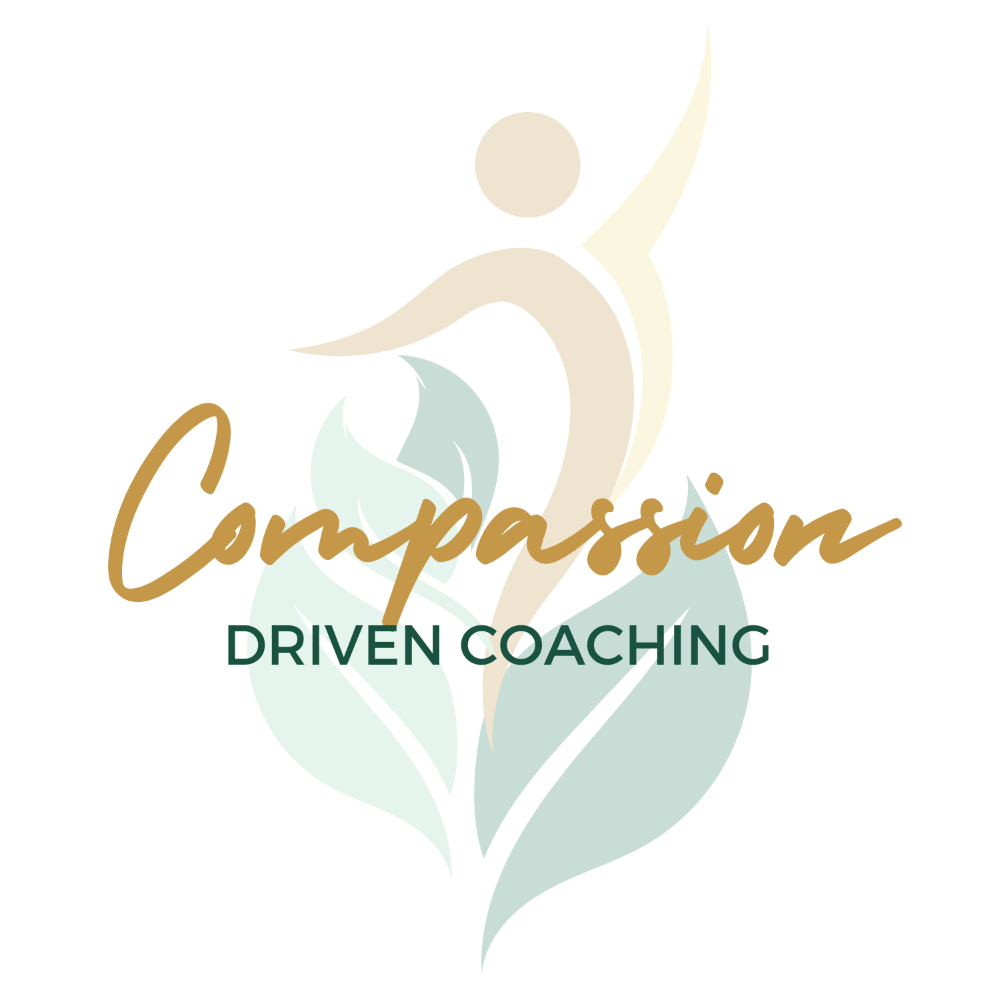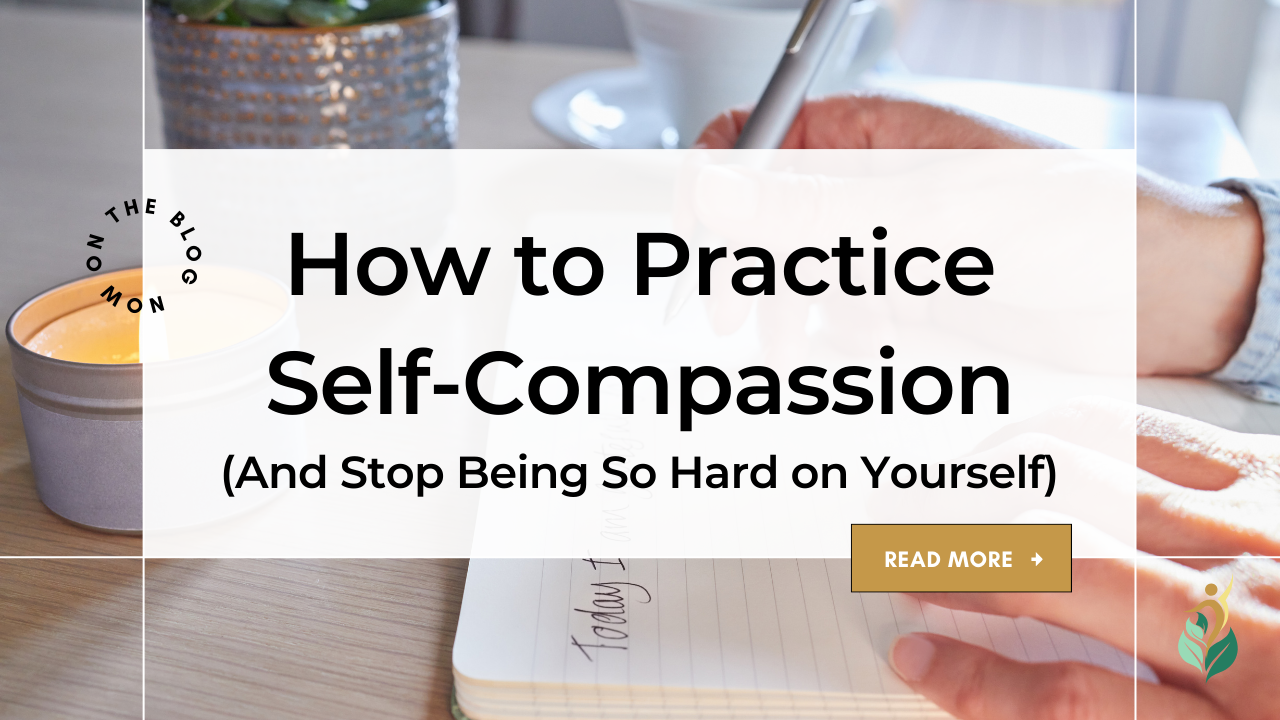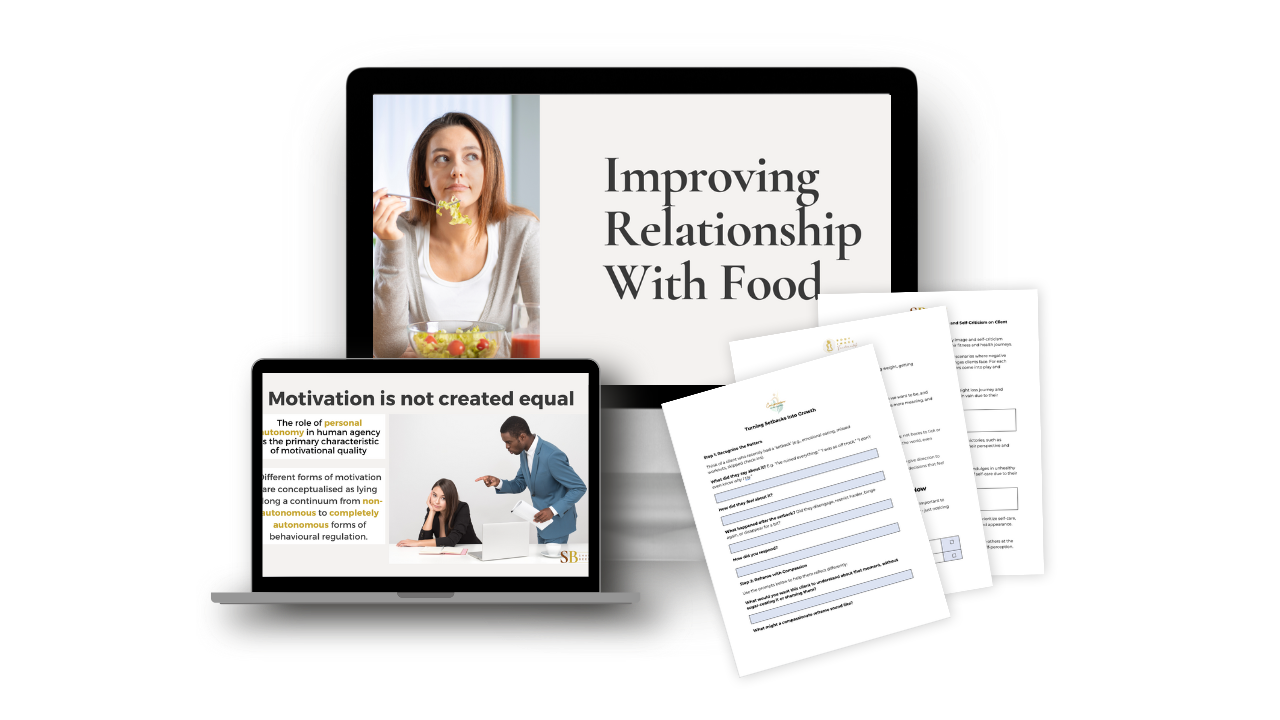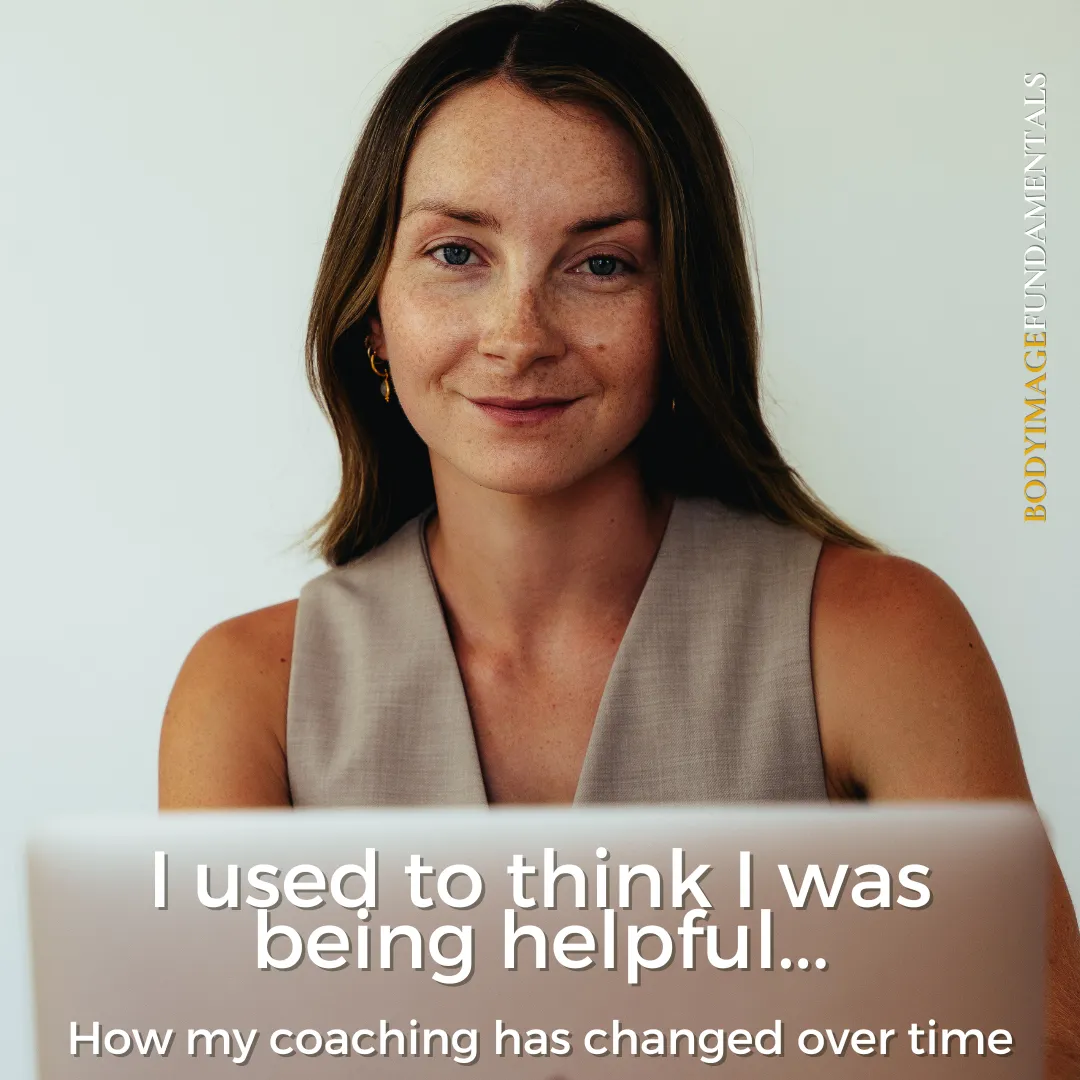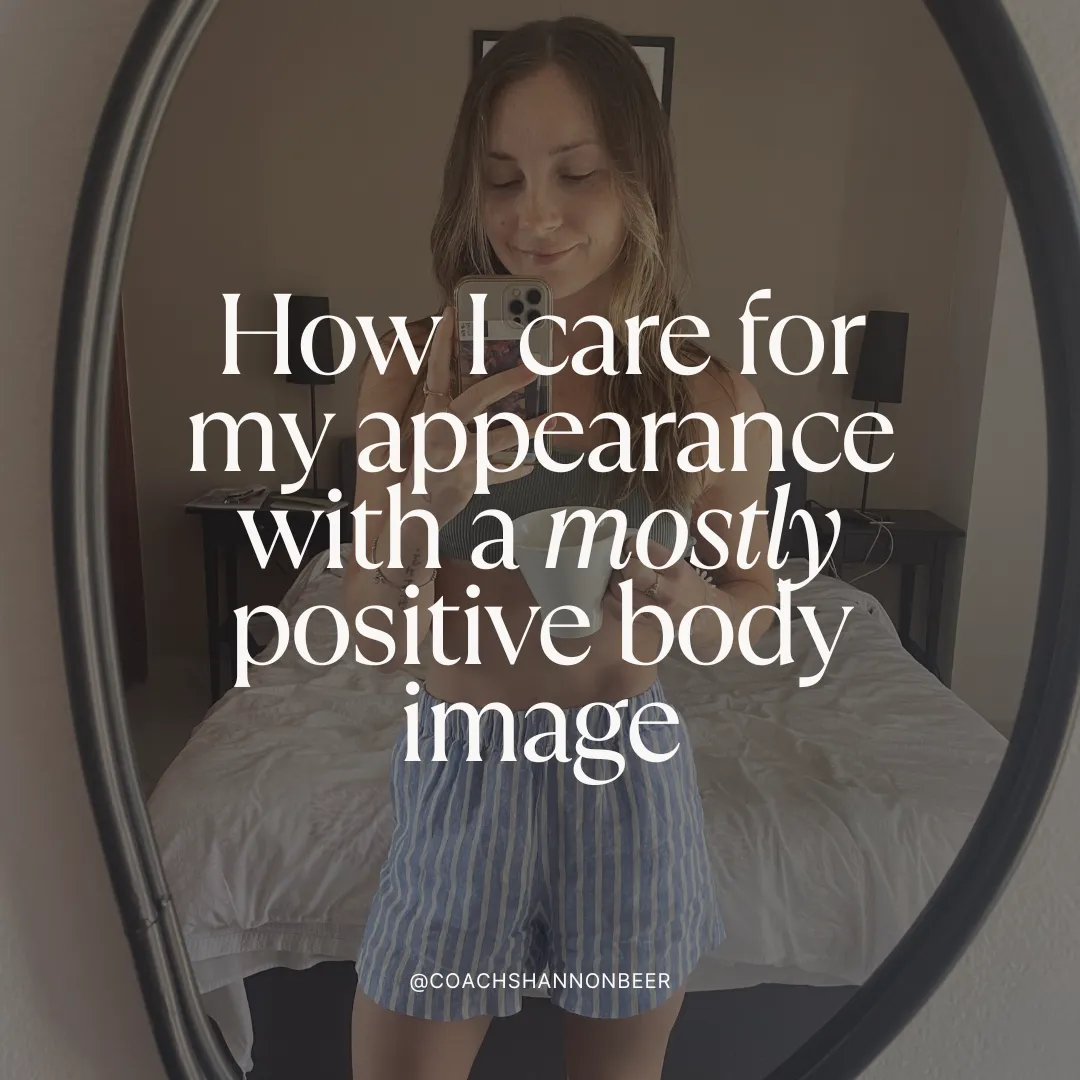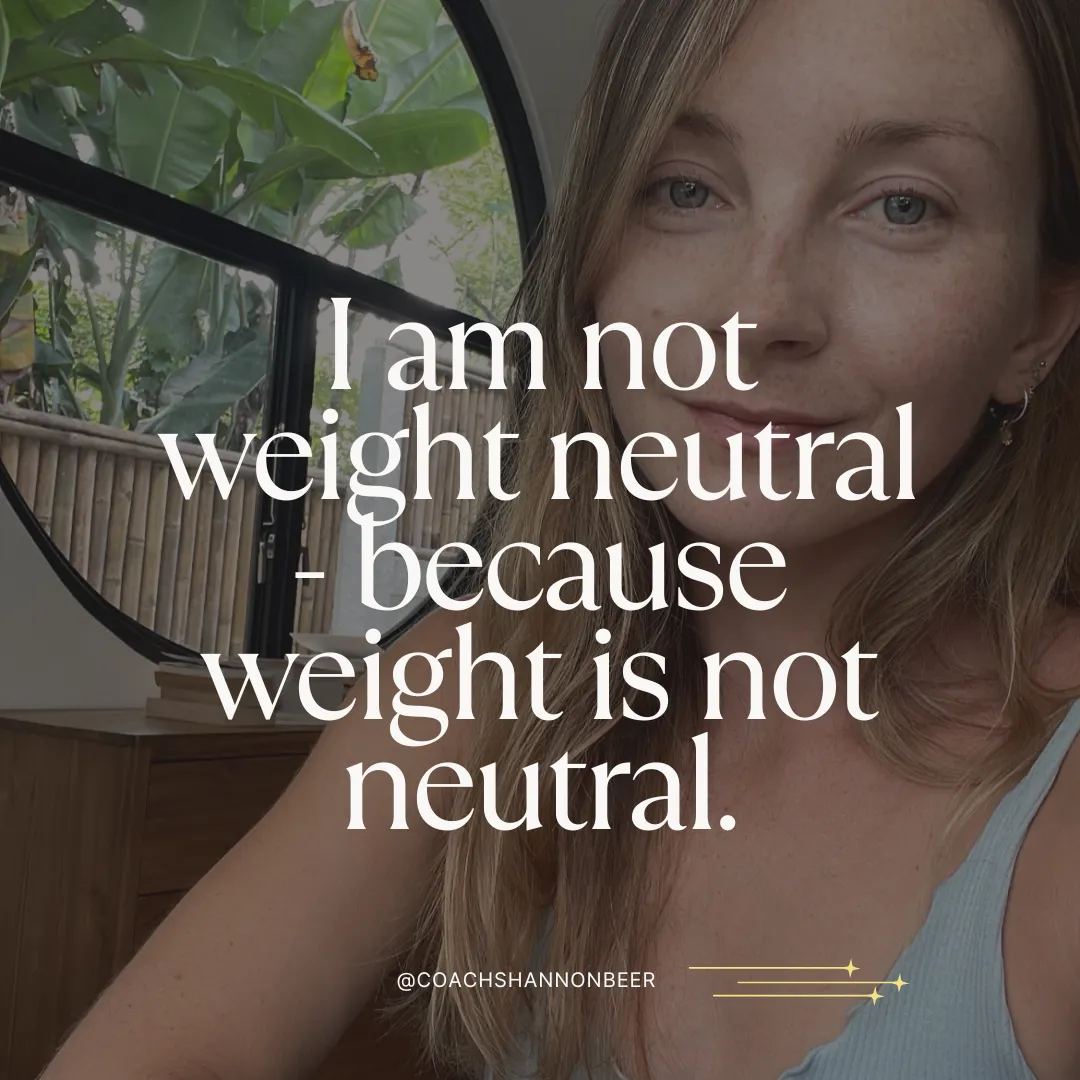Feeling Fat: Why It’s Not Just About Your Body Size
Jun 24, 2023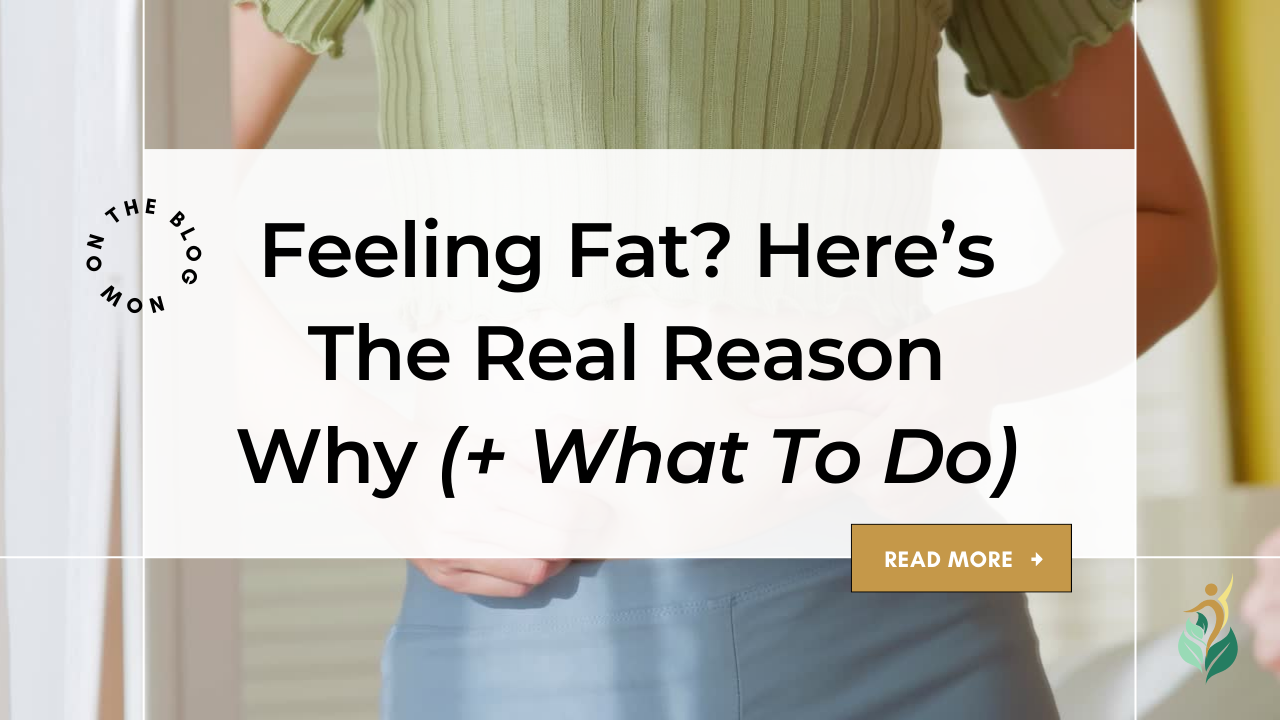
We've all felt fat at some point. And we probably blamed our bodies, and resolved to diet to lose weight. But it turns out that feeling fat has a whole lot less to do with our physical body size than we might think. ‘So why do I feel fat?’ I hear you ask. Well, ‘feeling fat’ encompasses a range of factors, including physical sensations, heightened self-consciousness about your body, and negative self-image. In this article, I will delve into the reasons why you may be feeling fat and provide guidance on how to address these experiences effectively.
Why Do I Feel Fat?
It is essential to distinguish between "feeling fat" and objective body size. Research suggests that "feeling fat" is a somatic sensation of carrying excess weight, which does not necessarily reflect one’s true amount of body fat [1]. Feeling fat is not the same as having fat and vice versa. Individuals in lean bodies can experience "feeling fat," while others in larger bodies may not. It is likely that our culture plays a big role, whereby ‘feeling fat’ reflects western women's internalized significance of weight and shape. Cultures with less weight stigma may experience "feeling fat" differently or not at all. Recognising that your perception of feeling fat is not a reflection of your actual body shape is a crucial step in understanding and addressing these emotions.
There are three interlinked explanations for why we may feel fat [2]:
- Body Displacement Hypothesis: 'Feeling fat' might be a way you project your negative emotions onto your body.
- Thought-Shape Fusion: It could be connected to thoughts that you've done something bad by eating 'fattening' food.
- Impaired interoceptive awareness (the ability to perceive and recognise internal bodily sensations) might also play a role.
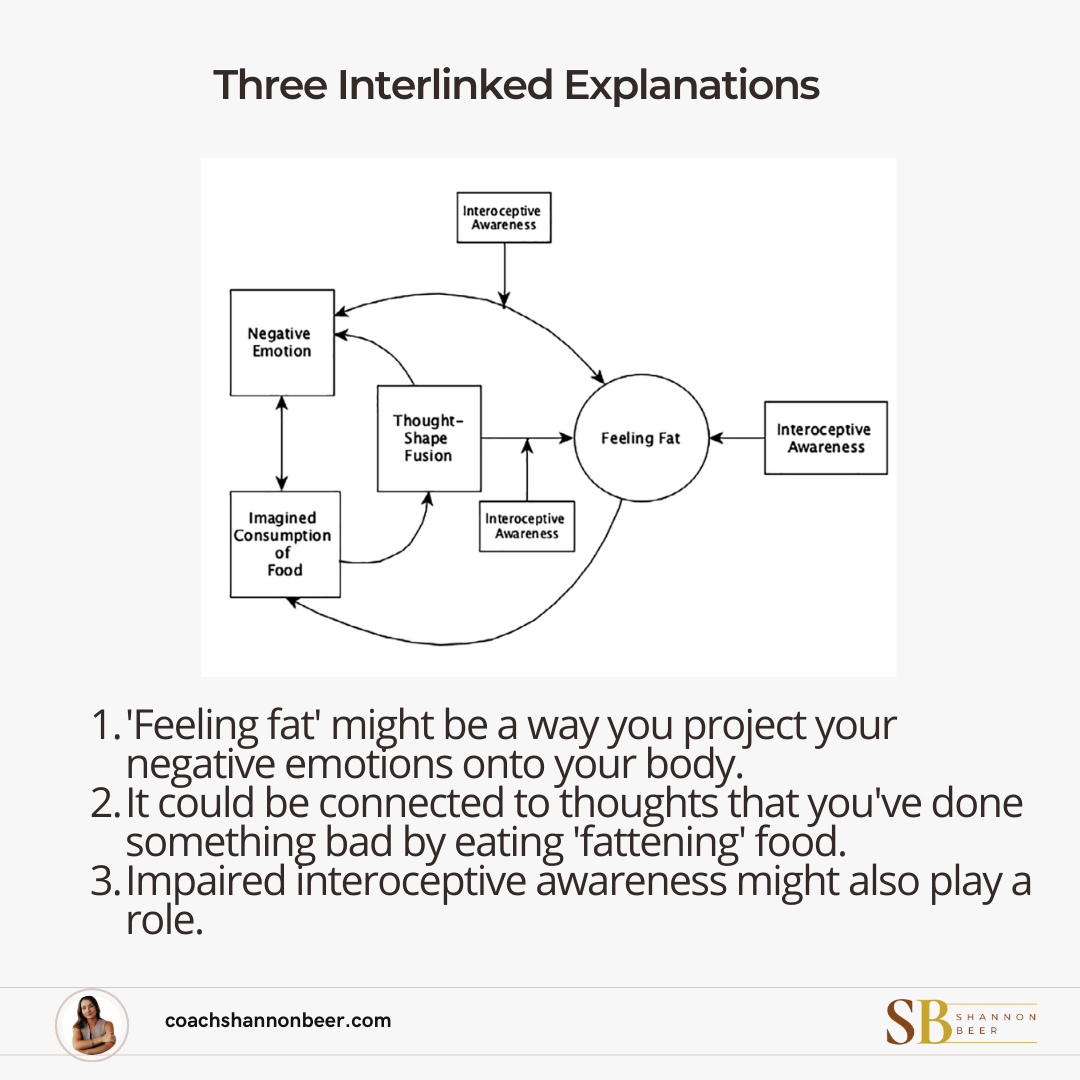
Body Displacement Hypothesis
Negative emotions like depression, distress, boredom, or anxiety, as well as physical sensations such as feeling full or bloated, can contribute to feelings of fatness [3]. It's worth noting that individuals who engage in repeated dieting attempts and have a perceived lack of control over food are more likely to experience these feelings [4].
Unlike other aspects of body dissatisfaction, 'feeling fat' tends to fluctuate in intensity throughout the day and from one day to another [5]. This variability indicates that it is closely tied to the processing of negative emotions. In times of emotional distress, some individuals may turn their emotions inward and confuse their genuine feelings with a heightened awareness of their body, resulting in increased feelings of fatness [6].
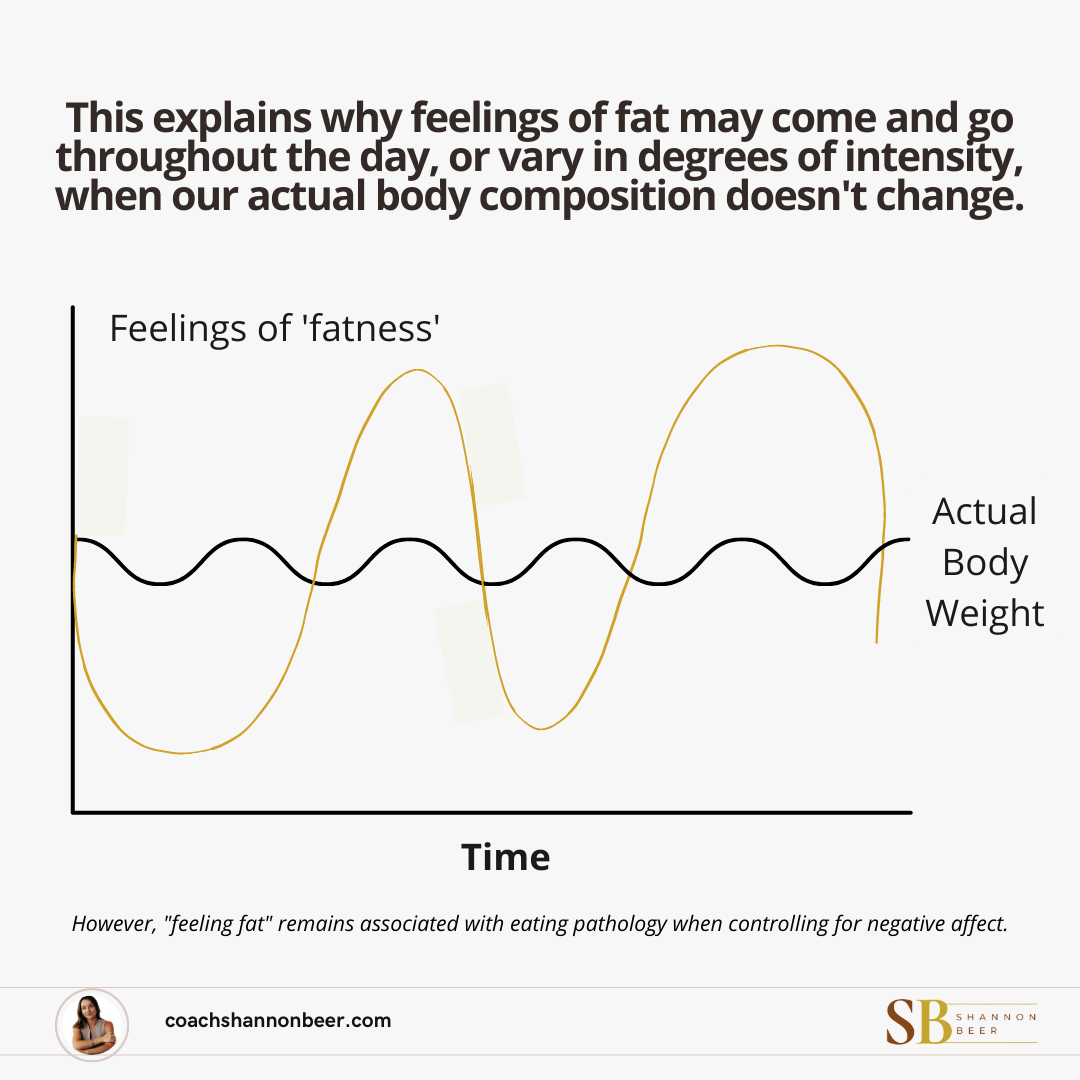
To gain further insights into your experience of "feeling fat," it is helpful to monitor your episodes of intense fatness and identify the context surrounding those moments. What other emotions or sensations are present when you feel fat? Are there specific triggers that seem to intensify these feelings? By exploring these questions, you can begin to unravel the underlying causes and patterns associated with "feeling fat."
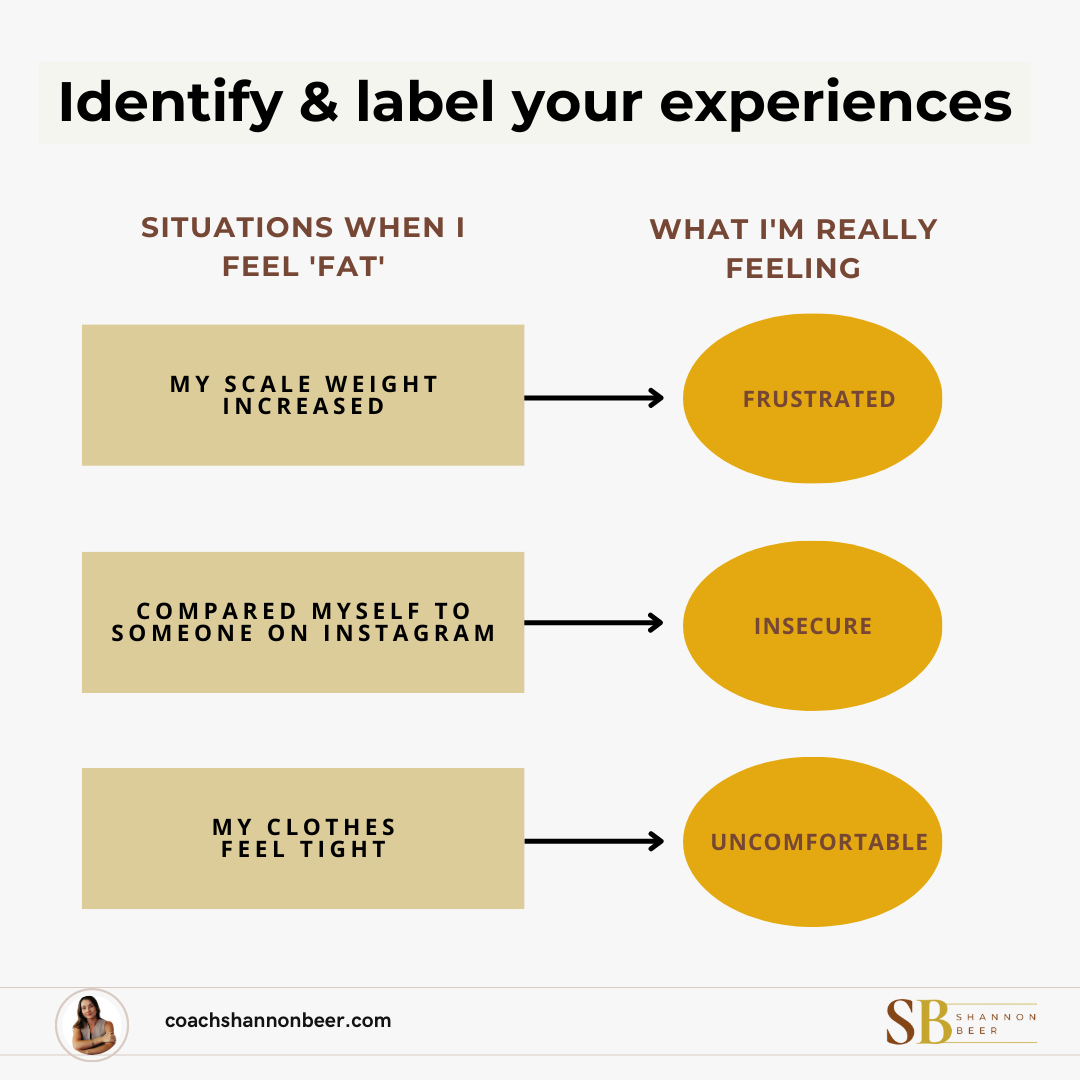
Thought-Shape Fusion
Thought-Shape Fusion is a cognitive distortion that occurs when we eat a food we regard to be ‘forbidden’/’bad’/’fattening’ [7]. If we believe that these foods are making us fat, we feel fatter. Such thoughts and interpretations may lead to low mood and repeated shape checking [8], self-criticism or unsuccessful attempts at thought suppression, all of which serve to keep us stuck in our tricky relationship with food.
It can help to understand that single foods in isolation are neither ‘good’ or ‘bad’ and that all foods can play a role in the context of our overall diet. It also helps to realise that attempting to control our diet in order to lose weight, or prevent weight gain, often makes it harder to eat well.
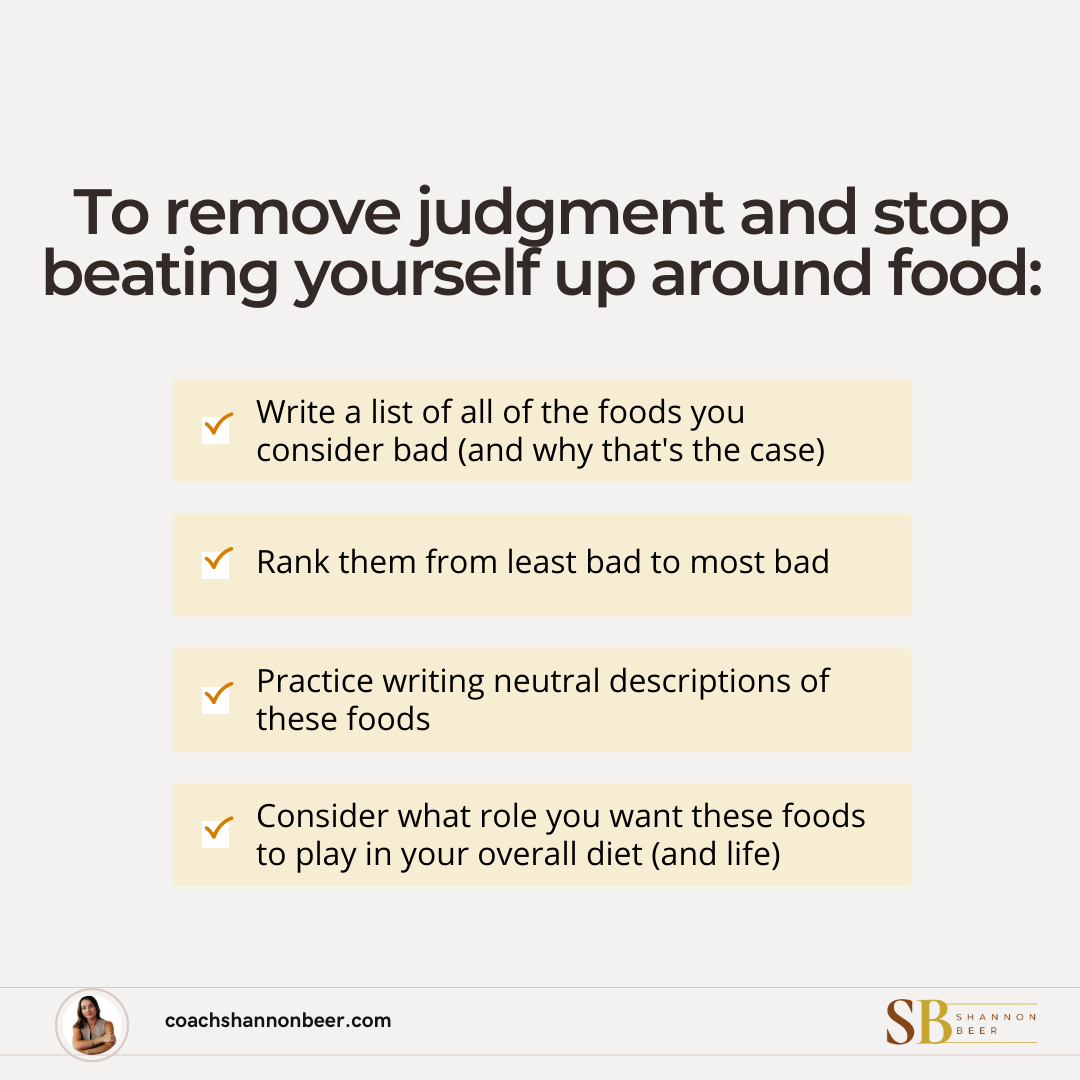
In addition, we can recognise that thoughts do not determine reality and that they can be influenced by various factors. We haven’t actually gotten fatter just because we think we have. Stepping back from our thoughts can help us to develop a more balanced and realistic view of our body and thoughts.
Interoceptive Awareness
Interoceptive awareness (IA) refers to the ability to perceive and recognise internal bodily sensations, such as heartbeat, breathing, hunger, fullness, and other physiological states [9]. A multidimensional conceptualisation of IA also includes the ability to: attend to body sensations without distraction or worry, regulate attention and emotions by attending to body signals, be aware of the link between body signals and emotions, and listen to and trust in body sensations [10].

In the context of "feeling fat," deficits in interoceptive awareness can play a role in contributing to the experience. One proposed mechanism suggests that individuals with impaired interoceptive awareness may misinterpret or misattribute normal bodily sensations as indicators of being overweight or fat. For example, one may experience mild bloating or temporary discomfort after a meal and interpret these signals as signs of being fat or overweight. This misinterpretation can contribute to the subjective experience of "feeling fat" regardless of actual weight or body composition.
Unpleasant emotions, such as anxiety or stress, can influence interoceptive awareness and amplify the misinterpretation of bodily sensations. For instance, during periods of emotional distress, individuals may be more attuned to their body and perceive normal physiological sensations as confirming their negative self-image of being fat.
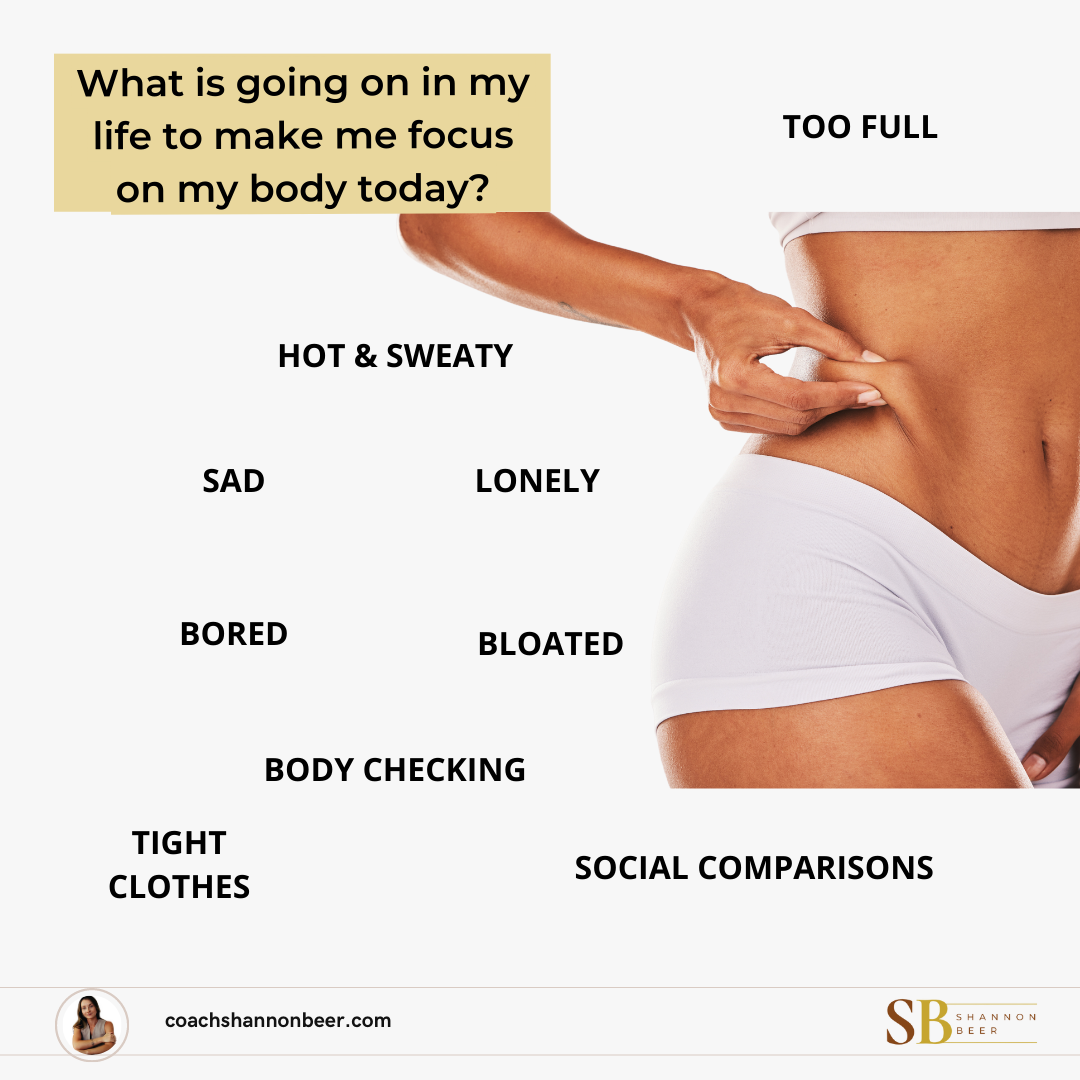
Understanding the role of interoceptive awareness in "feeling fat" is important because it highlights the complex interplay between cognitive and physiological factors in body perception and body image disturbances. By improving interoceptive awareness, individuals may gain a more accurate understanding of their bodily sensations and reduce the tendency to misinterpret them as signs of being overweight. This, in turn, can help alleviate the distress associated with "feeling fat" and contribute to a healthier body image.
How To Work Through Feeling Fat
Working with a body image informed coach can help you understand what’s really going on and find effective ways to manage these experiences. It’s important to address these feelings because when we blame our bodies for being ‘fat’, we stop recognising and correctly identifying our emotions. When we mislabel our feelings, we bring our focus back to our bodies and all the unhelpful behaviours that can maintain a negative body image and poor relationship with food.
Here’s how to break the cycle:
- Establish Awareness: Start by acknowledging whether you experience moments of feeling fat and recognise that this sensation is not synonymous with your objective body size.
- Monitor and Reflect: Keep track of your experiences of feeling fat and make note of the accompanying emotions and sensations. Reflect on what triggered these feelings and consider questions like "What else am I feeling mentally and physically?" and "Did something specific happen to provoke this emotion?"
- Identify Triggers: Identify common triggers associated with feeling fat, such as negative mood states (e.g., boredom, depression, loneliness) or behaviours that heighten body awareness (e.g., body checking, comparison-making). Recognising these triggers allows you to develop strategies to address them effectively.
- Address the Triggers: Working with a coach can help you to employ problem-solving techniques to address the triggers identified in the previous step. By developing healthier coping mechanisms for negative mood states and reducing body-checking behaviours, you can minimise the frequency and intensity of feeling fat.
- Enhance the Mind-Body Connection: Mindfulness, meditation, body scans and embodying activities like yoga or martial arts are all practices that encourage paying attention to the present moment and tuning in to your bodily sensations without judgment, to help you develop a better understanding of your internal experiences.
Remember, addressing and overcoming the feelings of "feeling fat" takes time and self-compassion. By working with a coach and implementing these strategies, you can gain a deeper understanding of your emotions, improve your body image, and develop a healthier relationship with your body. After all, you deserve to feel comfortable and confident in your own skin.
If you struggle to work through this on your own, and you’d like the support of an experienced coach in your corner, you may like to head over to Empower Coaching and see if it seems like a good fit for you.
References
[1] Striegel-Moore, R., McAvay, G., & Rodin, J. (1986). Psychological and behavioral correlates of feeling fat in women. International Journal of Eating Disorders, 5(5), 935–947. https://doi.org/10.1002/1098-108X(198607)5:5<935::AID-EAT2260050514>3.0.CO;2-0
[2] Mehak, A., & Racine, S.E. (2020). Understanding "feeling fat" and its underlying mechanisms: The importance of multimethod measurement. The International journal of eating disorders. 53. 10.1002/eat.23336.
[3] Murphy R, Straebler S, Cooper Z, Fairburn CG. Cognitive behavioural therapy for eating disorders. Psychiatric Clin North Am. 2010;33(3):611–27. https://doi.org/10.1016/j.psc.2010.04.004.
[4] Wardle, J., & Foley, E. (1989). Body image: Stability and sensitivity of body satisfaction and body size estimation. International Journal of Eating Disorders, 8,5 5 –62. doi:10.1002/1098-108X(198901)8:1<55::AID-EAT2260080106>3.0.CO;2-D
[5] Fairburn, C. G. (2008). Cognitive behavior therapy and eating disorders. New York, NY: Guilford Press.
[6] Forbush, K., & Watson, D. (2006). Emotional inhibition and personality traits: A comparison of women with anorexia, bulimia, and normal controls. Annals of Clinical Psychiatry, 18(2), 115–121.
[7] Shafran, R., & Robinson, P. (2004). Thought-shape fusion in eating disorders. The British journal of clinical psychology, 43(Pt 4), 399–408. https://doi.org/10.1348/0144665042389008
[8] Shafran, R., Fairburn, C. G., Robinson, P., & Lask, B. (2004). Body checking and its avoidance in eating disorders. International Journal of Eating Disorders, 35, 93–101.
[9] Garfinkel, S. N., Seth, A. K., Barrett, A. B., Suzuki, K., & Critchley, H. D. (2015). Knowing your own heart: Distinguishing interoceptive accuracy from interoceptive awareness. Biological Psychology, 104, 65–74. https://doi.org/10.1016/j.biopsycho.2014.11.004
[10] Mehling WE, Price C, Daubenmier JJ, Acree M, Bartmess E, & Stewart A (2012). The Multidimensional Assessment of Interoceptive Awareness (MAIA). PLoS One, 7, e48230. doi: 10.1371/journal.pone.0048230

Stuck In All Or Nothing Mode?
Your mind isn’t broken; it’s just running on autopilot.
Take the free Emotion System Audit and learn what's driving your patterns - and what to do when you feel overwhelmed or out of control.
